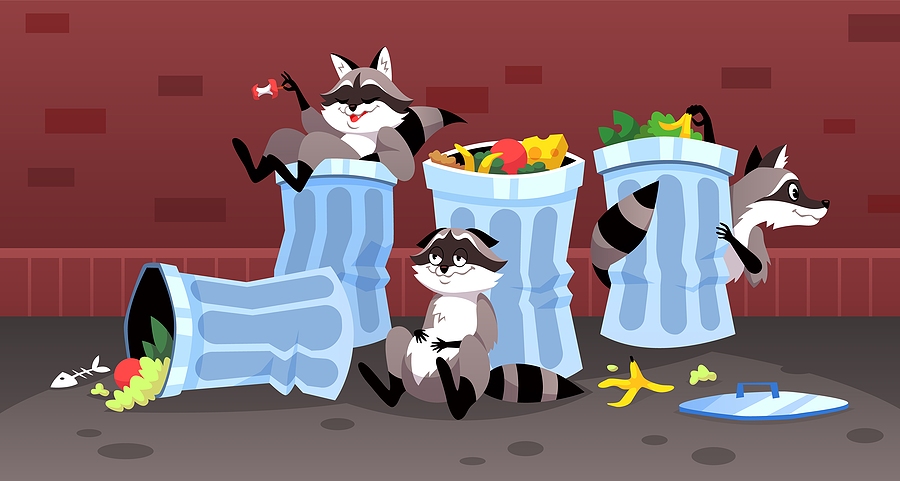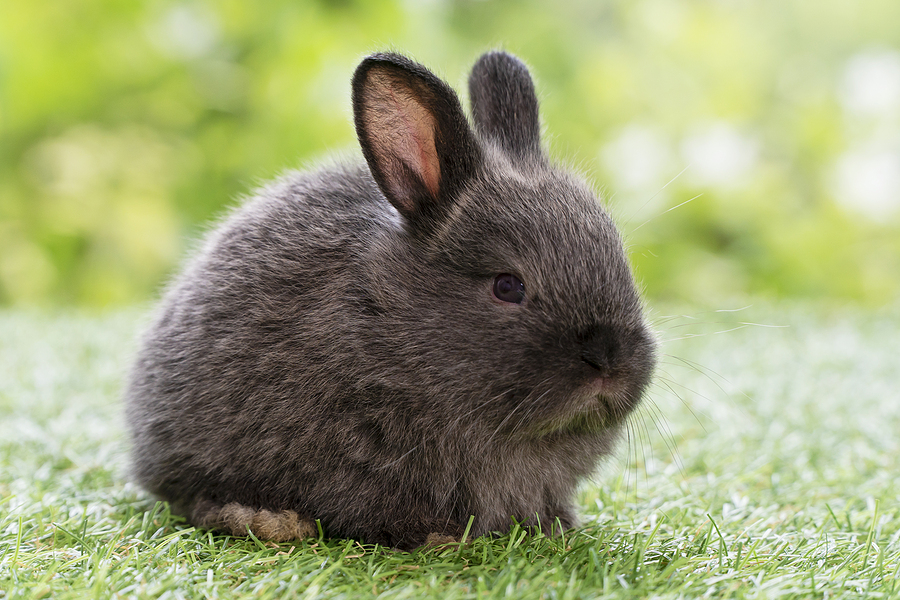Raccoons are opportunistic feeders. This means they will eat almost anything, whenever and wherever they can get it. And with dexterous paws and a higher intelligence, they easily succeed at the task. Unfortunately, this style of eating brings wild raccoons to our front lines, tipping trash cans and rummaging through dumpsters in our local neighborhoods and city areas. So, what are they looking for? Well, just about anything, really.
Continue reading to explore some of the most common things raccoons eat, then use this knowledge to divert raccoon interest away from your property!

Raccoons are Omnivores
Raccoons are omnivores, just like us! They eat the entire food table, including vegetation, meat, fish, legumes, grains, and more. Their diets reflect their surrounding environments and depend on what’s available and what’s nearby. So, they will vary from region to region, and from species to species. Raccoons will even dig up lawns in search of grubs, empty bird and squirrel feeders, steal pet food, and demolish gardens in residential and city areas!
Plant Matter
Raccoons will eat all types of fruit and vegetables, as well as, starches, legumes, and even grains. This long list includes common foods, such as grass, lettuce, melons, berries, apples, acorns, seeds, nuts, corn, potatoes, peas, cucumbers, and much more. In fact, raccoons have come to rely on corn as a staple in their diets, and really love the taste of sweet corn!
Meats
Raccoons eat an alarming selection of meat and animals. Not only will they gladly eat fast food burgers and turkey sandwiches left in the garbage, but they also commonly eat young birds, bird eggs, duck eggs, turtle eggs, turtles, fish, crayfish, rodents, frogs, snakes, salamanders, grubs, spiders, and many other insects. They will even eat garage and dead animals so long as they are still somewhat fresh.
Pet Food
Also, raccoons that live near urban and suburban areas really love dog and cat food! They are known to go to great lengths to get inside garages and outdoor sheds for a taste of puppy chow! They may even raid horse feed and livestock feed.
Raccoon Removal and Control
If you have raccoon problems, you need professional raccoon removal and control services. Contact a local wildlife control company for non-lethal and humane raccoon exclusion and preventative maintenance. They have the tools and training to safely remove raccoons and prevent their return. To get started on your own, simply remove outdoor attractions like pet food, pet bowls, bird baths, and trashcans.
Do you have a nuisance raccoon problem on your property? Contact Modern Wildlife Control at 317-847-6409 for safe and effective animal trapping and removal services for raccoons in Indianapolis, Indiana and its surrounding counties. We serve residential and commercial customers.
Related Posts:
How to Spot the Signs of Raccoons Around Your House
Recommended Attic Vent Screens for Raccoon Control
What Do Raccoons Like to Do?

